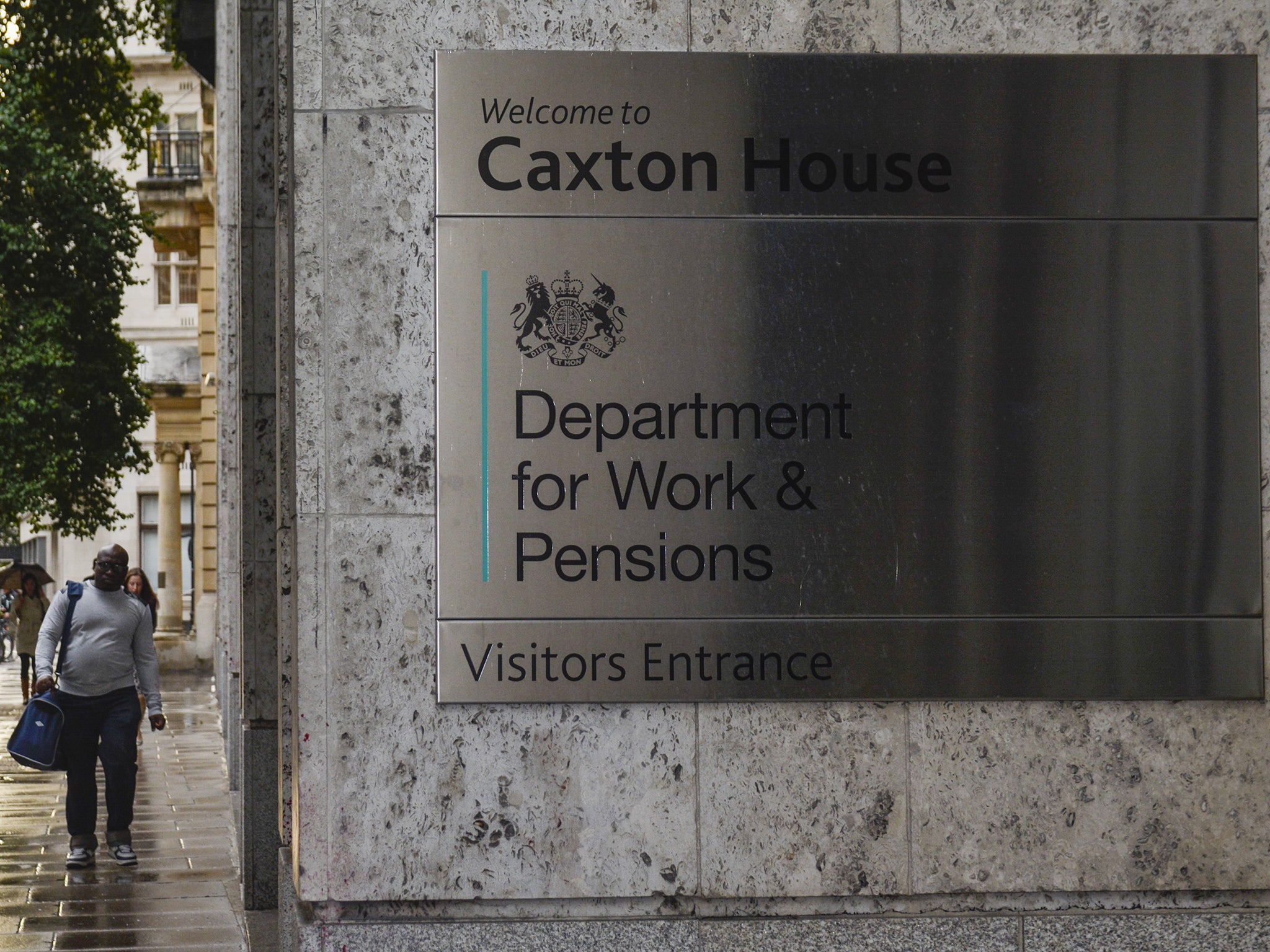Labour accuse Tories of not taking disabled people's rights seriously as staff in key department halved
'The ability of government departments to deliver targeted policies towards disabled people has been significantly eroded'

Your support helps us to tell the story
From reproductive rights to climate change to Big Tech, The Independent is on the ground when the story is developing. Whether it's investigating the financials of Elon Musk's pro-Trump PAC or producing our latest documentary, 'The A Word', which shines a light on the American women fighting for reproductive rights, we know how important it is to parse out the facts from the messaging.
At such a critical moment in US history, we need reporters on the ground. Your donation allows us to keep sending journalists to speak to both sides of the story.
The Independent is trusted by Americans across the entire political spectrum. And unlike many other quality news outlets, we choose not to lock Americans out of our reporting and analysis with paywalls. We believe quality journalism should be available to everyone, paid for by those who can afford it.
Your support makes all the difference.Labour has accused the government of not taking the rights of disabled people seriously after it emerged that the number of staff responsible for removing inequalities between disabled and non-disabled people fell by two thirds since 2010.
The Office for Disability Issues (ODI), a policy unit within the Department for Work and Pensions, has seen its staff slashed from 48 people to 20, while the DWP admitted that none of the bodies set up as part of its disability strategy have convened in almost a year.
“This is just the latest example of this Conservative government not taking the rights of disabled people seriously,” said Marsha de Cordova MP, Labour’s Shadow Minister for Disabled People.
“The UN has previously described this government’s policies as causing 'grave, systematic violations' of disabled people's’ rights.
“Now we know that they have cut the workforce of the Office for Disability Issues by over half since 2010, the very body that should be tackling these injustices.
A UN report last year found that the UK has not done enough to ensure the UN convention on disabled people’s rights, to which the UK is a signatory, is reflected in British law and policy.
It blamed the high levels on poverty among disabled people in the UK on the impact of austerity which had caused “a human catastrophe” that totally neglected "the vulnerable situation people with disabilities find themselves in”.
In April, MPs said that the government's response to an inquiry into the disability benefit system "falls short" after it refused to accept a series of recommendations designed to rebuild trust in the assessment process.
A report by the Work and Pensions Committee found that "untenable human costs" had been meted as a result of botched changes to personal independence payments and employment support allowance.
Ms de Cordova pledged that a Labour government would incorporate the United Nations Convention on the Rights of Disabled People fully into law to ensure that disabled people's’ rights are protected.
The DWP insisted that “elements of the work that was carried out by ODI is now being taken forward by specialist units across government,” such as the Work and Health Unit, according to the Disability News Service, which conducted the investigation.
“ODI remains the focal point for cross-government disability issues, working on a range of issues to empower disabled people and enable them to participate fully in society, but their team is [by] no means the only people working on disability issues,” said a DWP spokesperson.
“ODI has an oversight role to provide advice and facilitate engagement, as departments focus upon disability as part of their policy.”
“It is normal practice for different governments to set up new structures and protocols.”
However, rights campaigners claimed that disabled people have been overlooked in recent policy papers.
“Disabled people have already seen the consequences of the decimation of the ODI,” said Philip Connolly, policy manager at Disability Rights UK.
The connected communities strategy only mentioned disabled people three times, according to Mr Connolly, and there were no specific policies for disabled people.
“Disabled people were not mentioned in the Treasury Green Book for procurement,” he said. “Nor were they mentioned in the industrial strategy until our lobbying led the government to pledge a 20 per cent improvement on apprenticeships for disabled people.
“The ability of government departments to deliver targeted policies towards disabled people has been significantly eroded because many of the civil servants who would ensure that didn’t happen are no longer in post.
“This is damaging to the objective of an inclusive society,” he added.
James Taylor, head of policy and public affairs at disability charity Scope, said: “Disability is an important issue, and needs to be taken seriously by government. We hope this means that disability issues aren’t being downgraded.
“Life can be tough for many disabled people. It can be difficult to get and stay in work, life’s still far too expensive if you are disabled, and negative attitudes can mean day-to-day activities are an unnecessary struggle.
“Government must show leadership, and implement a cross-Whitehall strategy to tackle the issues that affect disabled people every day.” he added.
Join our commenting forum
Join thought-provoking conversations, follow other Independent readers and see their replies
Comments